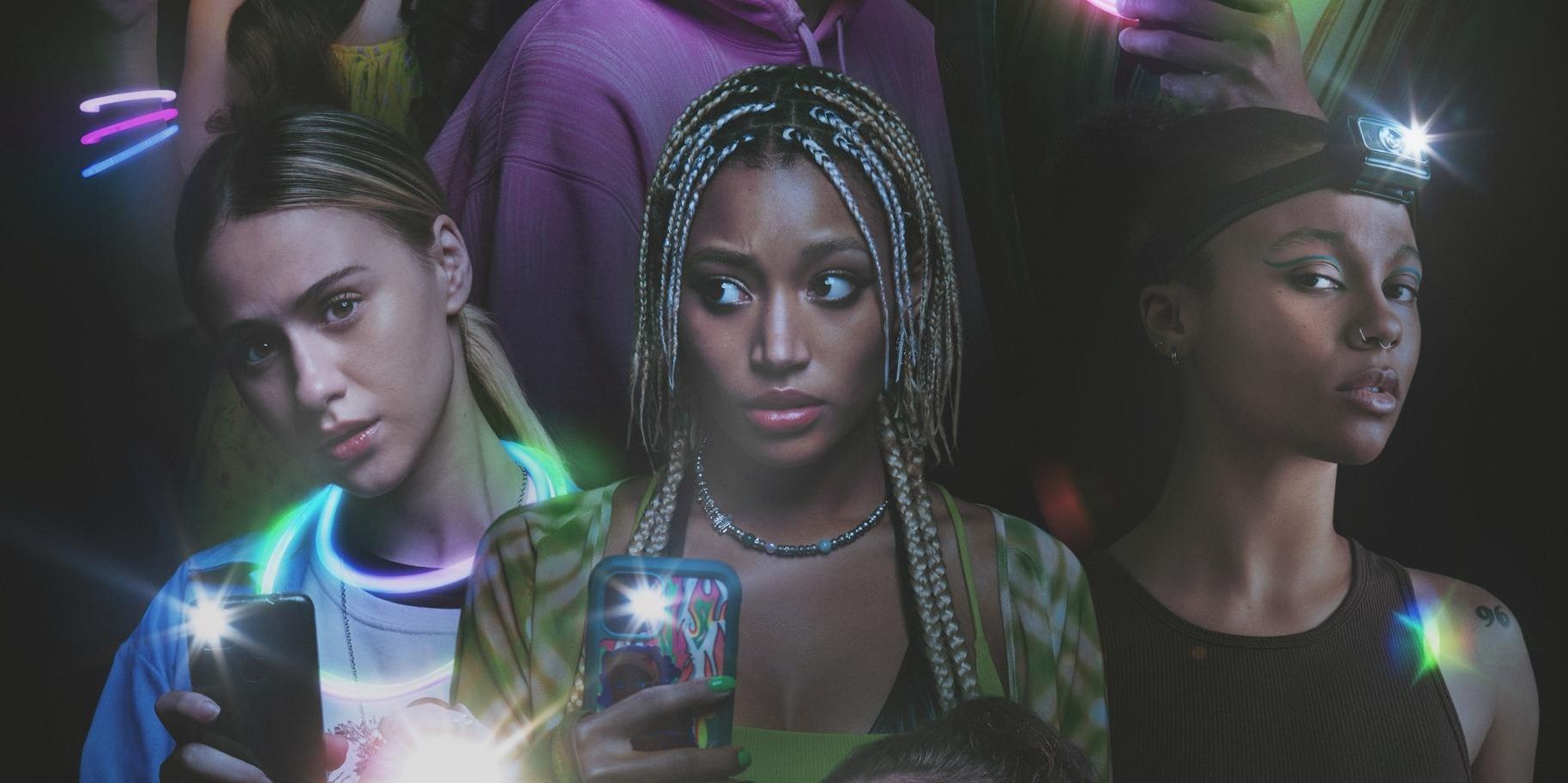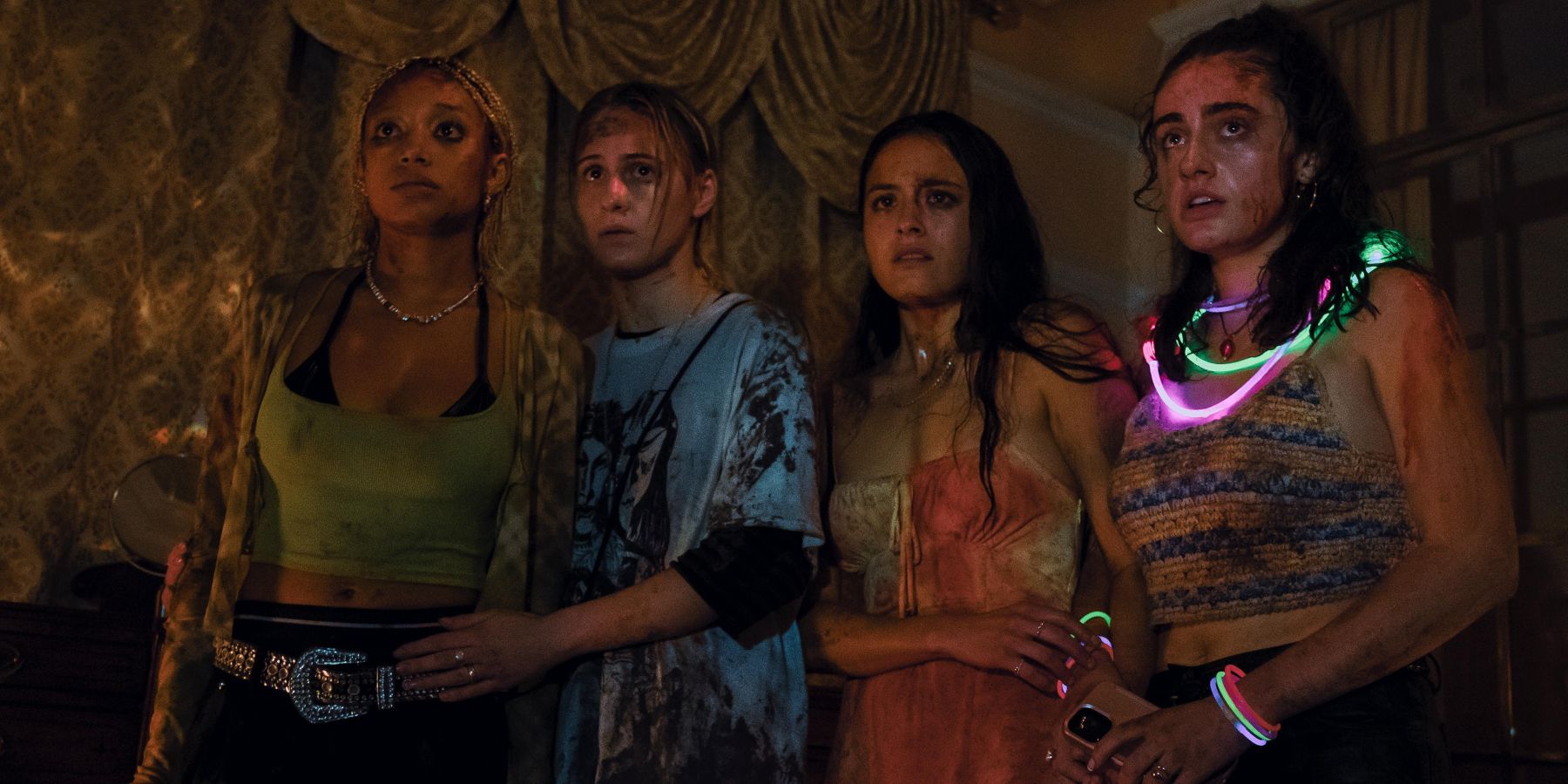The following contains spoilers for Bodies Bodies BodiesGen Z often gets the short end of the stick when it comes to representation in media. They can often be the butt of the joke in anything made by Millenials or Gen X, and it always comes off as a dig at "kids these days." Because of the internet and meme culture perpetuated on sites like TikTok and Twitter, Gen Z (which, for clarification, is defined as anyone born between the years 1997 and 2012) has developed its own particular brand of humor. They even use a lot of coded phrases and slang that are constantly evolving, and might confuse those who aren't as plugged into that side of pop culture.
This also leads to members of older generations making fun of the ways that Gen Z communicate their ideas, which often leads to critiques of "woke" culture or adjacent conversations. This was actually the concern when the new film Bodies Bodies Bodies released its first trailers. They were full of young people using buzzwords like "privilege" and "triggered," and this turned many off of seeing the film. It wasn't as clear in the trailers, but Bodies Bodies Bodies actually uses this kind of language satirically, and actually does a good job of incorporating it into the humor of the movie without it feeling like an insult to a whole generation.
Bodies Bodies Bodies feels like it was written by someone who actually has a finger on the pulse of Gen Z culture, and isn't just looking down on it from above with an air of disdain. The satire is biting, pointing out the ways in which some people use buzzwords to try and avoid taking responsibility for their actions without demonizing the language or "woke" way of thinking itself. More than anything, it's about how privileged rich kids don't know how to properly engage with each other or handle a difficult situation — like the series of murders in the film — because they're so self-absorbed. And yet, they think they're good people because they're on the "right" side of things online.
There is a whole discussion in the movie around privilege, and the characters almost throw the word around as an insult, while trying to claim that they are aware of their own privilege and therefore aren't like the others. One character even points out to another that though she tries to act like her family doesn't come from money like everyone else's, they're still solidly upper middle class, making them more well-off than most and just below the one percenters.
This is exactly the type of satire that the movie hits perfectly. It uses those "buzzwords," and the way that the characters use them as weapons against each other, to make its point. The point of the story is that most of these characters are pretty much unbearable and are terrible people, but they shield themselves from those accusations by being "good people" in the way that a lot of online spaces define morals. It doesn't matter whether they're actually kind. Their acknowledgment of their privilege (regardless of how they use that privilege) is enough to make them good people in their own eyes.
Characters get blamed for victimizing themselves, which is an ironic statement two-thirds of the way through a movie where all of the remaining characters truly are victims after witnessing the deaths they have. This is exactly why the line works, though. It juxtaposes a common term that gets used as an insult in certain online or Gen Z spaces in a way that is totally valid in this sense (as the character often does play the victim), but is also an absurd statement after all of the events that have just happened.
The ending of the film even has the air of Gen Z nihilistic humor. When Sophie and Bee check David's phone and discover that the "murder" was actually just an injury he caused to himself, and that all of the fighting and killing that happened afterwards were for nothing, it feels ironic. Again, these kids are so self-absorbed and so quick to believe the worst in each other that they gave into their paranoia when they really didn't need to. The ending feels absurd because it's sort of a release of tension that also feels incredibly bleak. It's a perfect blend of tones that feels similar to how Gen Z interacts with the world online in an ironic and nihilisitic way.
The movie isn't afraid to make fun of these things, but it does it in a way where it's not talking down to the whole generation. Instead, it targets this specific group of characters who are all pretty unbearable (in the most entertaining way possible). The issue isn't the trends or the language or the sense of humor, it's how these privileged rich kids apply all of that to their lives. They become so obsessed with becoming this ideal of "cool" that nothing else matters to them, even in the midst of them believing someone in the group to be a murderer. The humor in the film is sharp and hits this balance perfectly, emphasizing its point while also poking a little light fun at how Gen Z sees itself.



